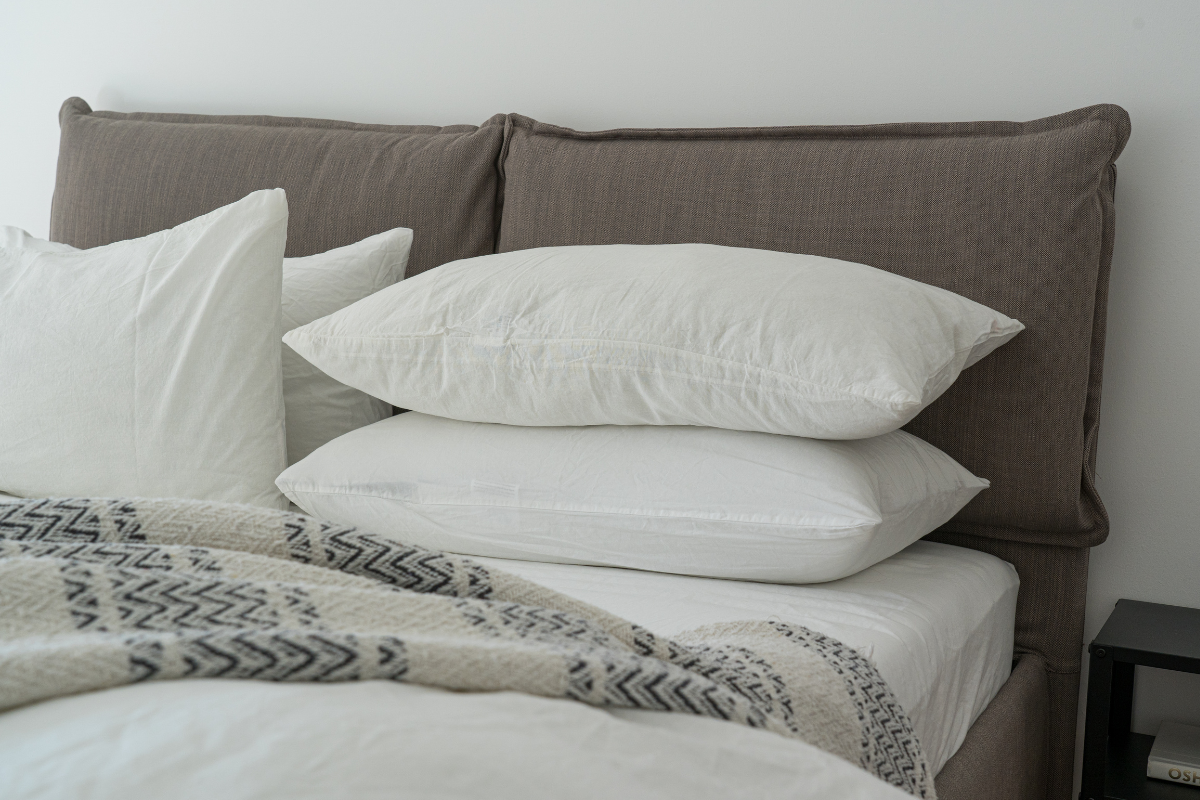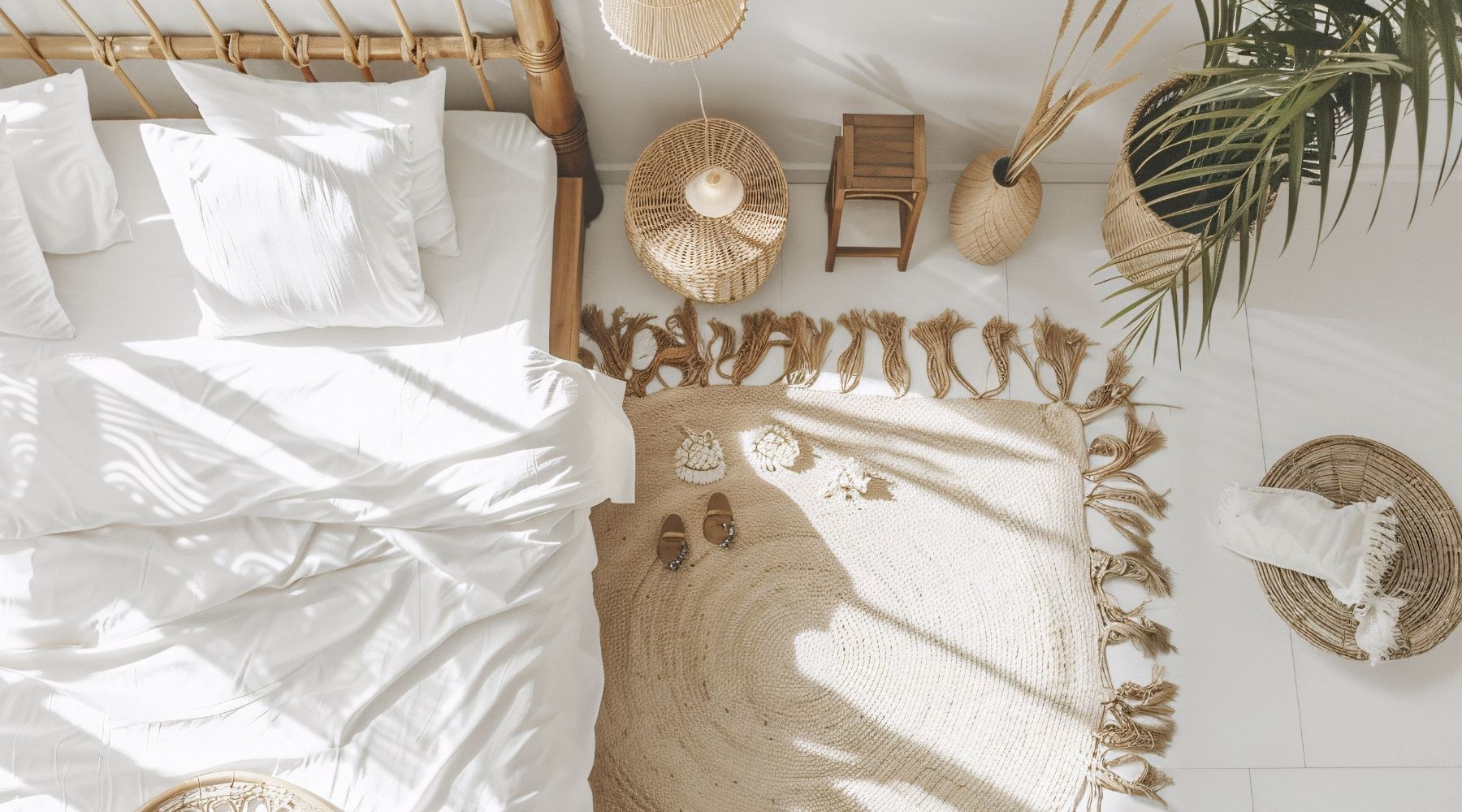If you find yourself waking up every morning with itchy eyes, sneezing, congestion, or a scratchy throat, you’re not alone. Nighttime allergies can seriously disrupt your sleep quality and overall well-being. But here’s the kicker: the source of your allergy flare-ups might be lurking right under your nose - your bedding.
Yes, your sheets could be making your nighttime allergies worse, and switching to the right bedding might be the key to restful, allergen-free sleep.
How Traditional Bedding Fuels Nighttime Allergies
The materials and treatment of common bed sheets often create a perfect storm for allergens to multiply and irritate sensitive skin and airways:
Dust Mites Thrive in Conventional Bedding
Dust mites are microscopic creatures that love warm, humid environments - like your bed. They feed on dead skin cells, and their droppings contain proteins that are powerful allergens. Bedding made from cotton, polyester, or blended fabrics provides an ideal habitat for these pests, especially when sheets don’t breathe or wick moisture well. Dust mites can trigger allergic rhinitis, asthma, eczema, and other respiratory issues.
Mold and Mildew Lurk in Damp Sheets
If your bedding traps moisture, mold spores can develop and multiply quickly. Poor moisture management is common in polyester and low-quality cotton sheets, which hold sweat and humidity against your skin. Mold exposure can worsen allergies and cause symptoms such as nasal congestion, coughing, and throat irritation.
Chemical Residues from Pesticides, Dyes, and Softeners
Mass-produced bedding often contains residual pesticides from cotton farming, toxic dyes, and chemical softeners. These substances can cause skin irritation, rashes, and exacerbate respiratory sensitivity—especially in people with sensitive skin, eczema, or asthma.
Rough and Irritating Fabrics
Fabrics that are rough, stiff, or chemically treated can cause physical irritation that worsens allergic reactions. You might toss and turn more due to discomfort, leading to restless sleep and an aggravated immune system.
The Eucalyptus Bedding Advantage: A Natural Solution for Allergy Sufferers
Switching your sheets to eucalyptus fiber bedding (made from TENCEL™ Lyocell) is an evidence-backed way to reduce allergy symptoms and sleep more soundly. Here’s why eucalyptus bedding stands out:
1. Naturally Hypoallergenic and Antibacterial
Eucalyptus fibers resist dust mites and bacteria naturally, creating a cleaner sleep environment. Unlike cotton or synthetic sheets, eucalyptus bedding reduces the common triggers of allergic reactions.
2. Superior Moisture-Wicking and Breathability
The unique structure of eucalyptus fibers pulls moisture away from your body and allows for excellent airflow. This moisture control prevents the buildup of sweat and humidity, making it hard for dust mites and mold to survive.
3. Chemical-Free, Ultra-Soft Comfort
Eucalyptus bedding is naturally smooth and soft on the skin without relying on chemical softeners or dyes. This reduces skin irritation and inflammation often caused by harsh textile treatments.
4. Sustainable and Eco-Friendly Production
Eucalyptus is grown with minimal water, no pesticides, and processed in a closed-loop system that recycles water and solvents. This means you’re not only improving your health but also supporting environmental sustainability.
Why Your Bedding Choice Matters More Than You Think
Your sheets are in close contact with your body for around 7-8 hours every night, directly impacting your skin and respiratory health. Choosing hypoallergenic, breathable, and chemical-free bedding like eucalyptus sheets can:
-
Reduce allergy flare-ups
-
Improve skin comfort and reduce irritation
-
Enhance sleep quality by preventing night wakings
-
Support respiratory health by reducing airborne allergens
How to Make the Switch to Allergy-Friendly Bedding
-
Opt for TENCEL™ Lyocell or eucalyptus fiber sheets known for their hypoallergenic properties.
-
Avoid synthetic blends or low-quality cotton that trap heat and moisture.
-
Wash bedding weekly in hot water to eliminate allergens.
-
Use dust-mite-proof pillow and mattress covers for added protection.
Conclusion: Sleep Clean, Breathe Easy, Live Better
If you’re tired of waking up congested, itchy, or miserable, it’s time to rethink your bedding. Eucalyptus bedding offers a luxurious, sustainable, and allergy-friendly alternative that can transform your nights and your health.
By choosing natural, breathable sheets free from harmful chemicals and allergens, you’re investing in better sleep and a better life.








Share:
Feeling Exhausted After a Night’s Sleep? Your Bedding Might Be the Culprit
The Secret to a Pinterest-Worthy Bedroom: Transform Your Space Into a Dream Haven